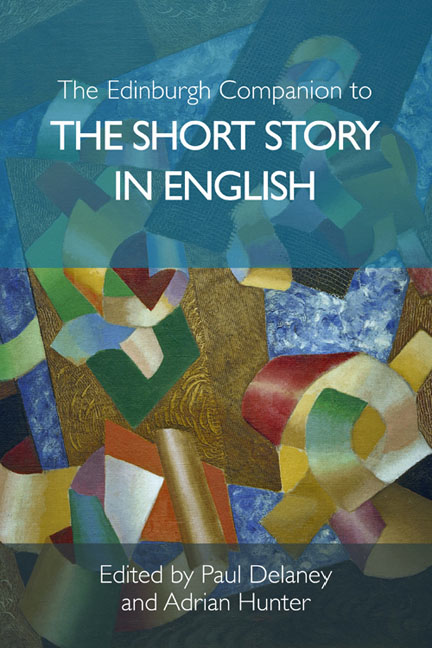Book contents
- Frontmatter
- Contents
- Acknowledgements
- Notes on Contributors
- Introduction
- Part I Historicising the Short Story
- Part II Publishing the Short Story
- Part III Forms of the Short Story
- 9 Short-Short Fiction
- 10 The Weird Tale
- 11 The Horror Story
- 12 Experimental Short Stories
- 13 The War Story
- Part IV Placing the Short Story
- Part V Identity and the Short Story
- Index of Short Story Titles
- General Index
10 - The Weird Tale
from Part III - Forms of the Short Story
Published online by Cambridge University Press: 18 December 2019
- Frontmatter
- Contents
- Acknowledgements
- Notes on Contributors
- Introduction
- Part I Historicising the Short Story
- Part II Publishing the Short Story
- Part III Forms of the Short Story
- 9 Short-Short Fiction
- 10 The Weird Tale
- 11 The Horror Story
- 12 Experimental Short Stories
- 13 The War Story
- Part IV Placing the Short Story
- Part V Identity and the Short Story
- Index of Short Story Titles
- General Index
Summary
TO OFFER A HISTORY OR EVEN a definition of the weird tale risks unweirding it, potentially placing an unearthly and sometimes wide-eyed literature too squarely in the world. The weird, perhaps more than most categories, exists between periods, nations and movements, while regularly narrating events that break with the particular circumstances of history. The weird tale begins somewhere in the world, but often departs, or glimpses a departure, from it. That departure is also visible in the ongoing reception of the weird. Shaped by the practices of magazine publication and anthologisation, readers have been encouraged to take the weird tale out of historical context. Readers who have no interest in American literature in the twenties and thirties more generally will nevertheless happily devour the works of H. P. Lovecraft without needing to connect them to the historical moment they emerged from. This unworldly placelessness is one of the distinguishing features of the weird. Mark Fisher suggests the ‘weird’ and the ‘eerie’ (a term Fisher associates with, and distinguishes from, the weird) are preoccupied ‘with the … strange – not the horrific. The allure that the weird and the eerie possess is not captured by the idea that we “enjoy what scares us”. It has, rather, to do with a fascination for the outside, for that which lies beyond standard perception, cognition and experience.’ Perception, cognition and experience exist within history; the weird potentially offers a glimpse of something outside. In doing this, it often becomes preoccupied with mysterious or unauthorised forms of knowing and knowledge. Intuition becomes at least as important as ratiocination, and occult tomes hold the weight of accepted philosophies. The weird can be difficult to make sense of, suggesting both a recognisable human feeling and a literature of illegible and inhuman circumstance.
Although the weird nods to various genres, critics often suggest it is not really a genre in itself. In some ways, the history of the weird tale is really a history of the conversation about what constitutes the weird. The most stable elements in this discussion are the work of H. P. Lovecraft, noted for his creation of a misanthropic fiction of unclassifiable beings, distant times and planes, and tentacle-headed gods; and the publication of the American pulp magazine Weird Tales, ‘The Unique Magazine’ (1923–54), which is generally noted for having championed Lovecraft and his circle.
- Type
- Chapter
- Information
- The Edinburgh Companion to the Short Story in English , pp. 160 - 174Publisher: Edinburgh University PressPrint publication year: 2018



